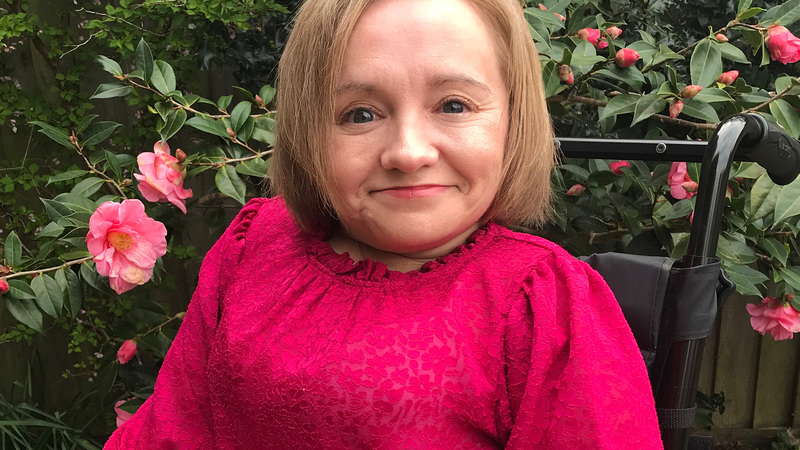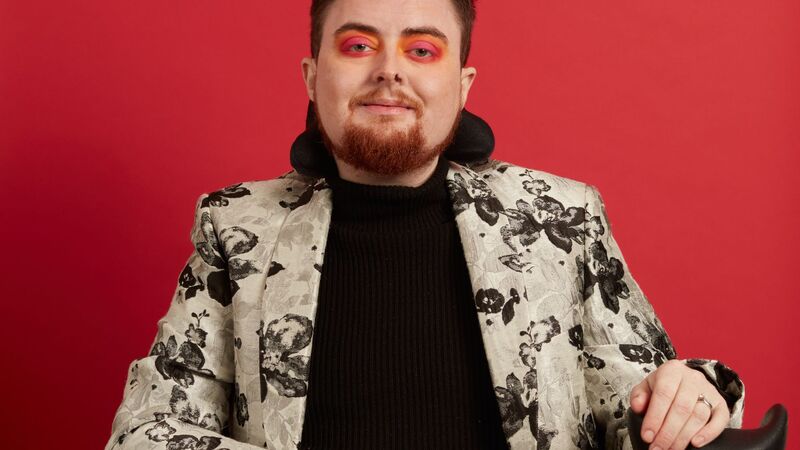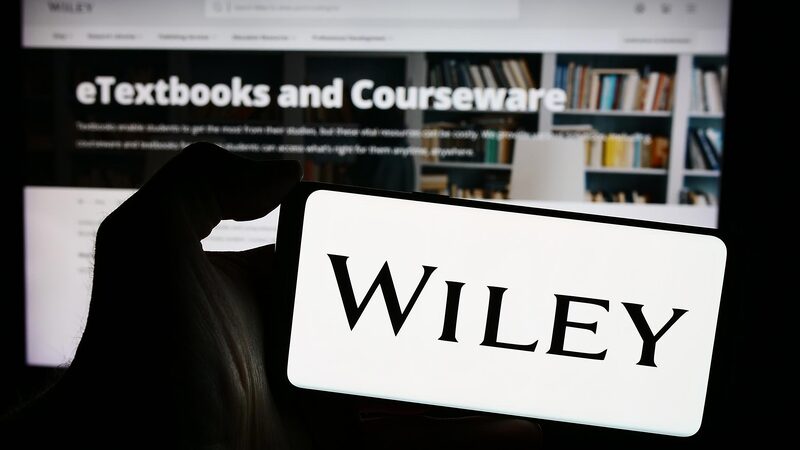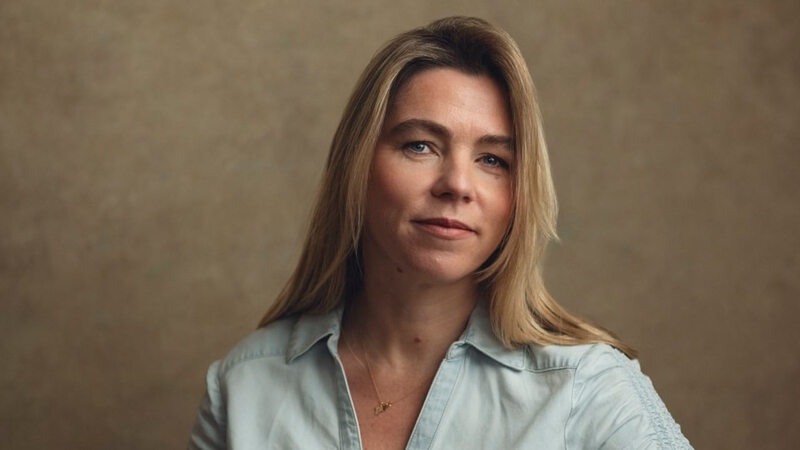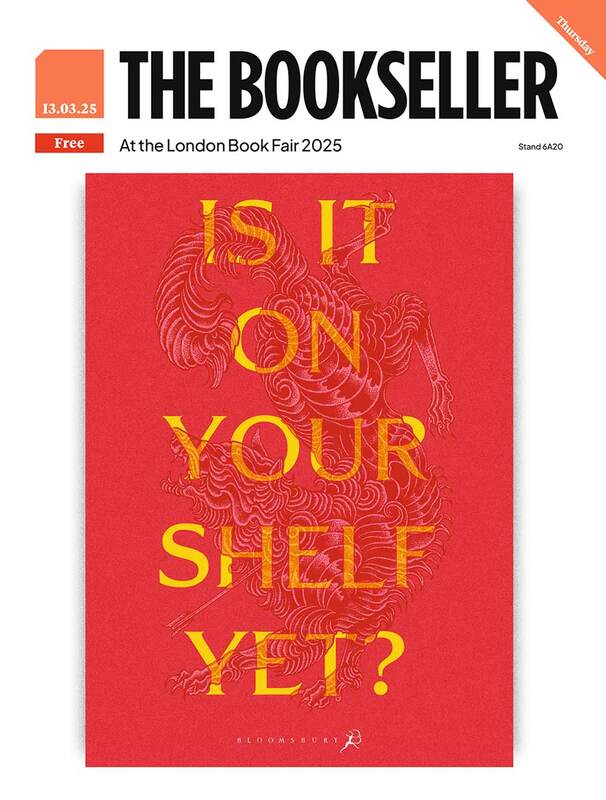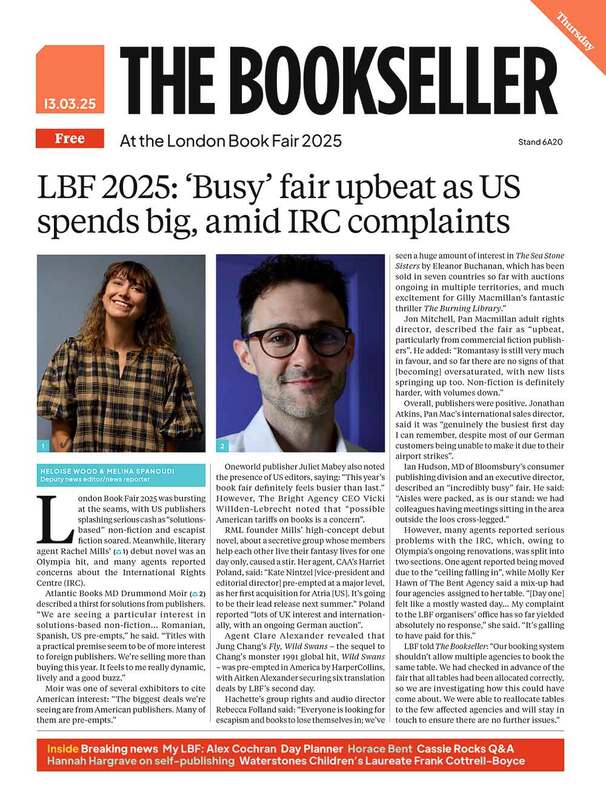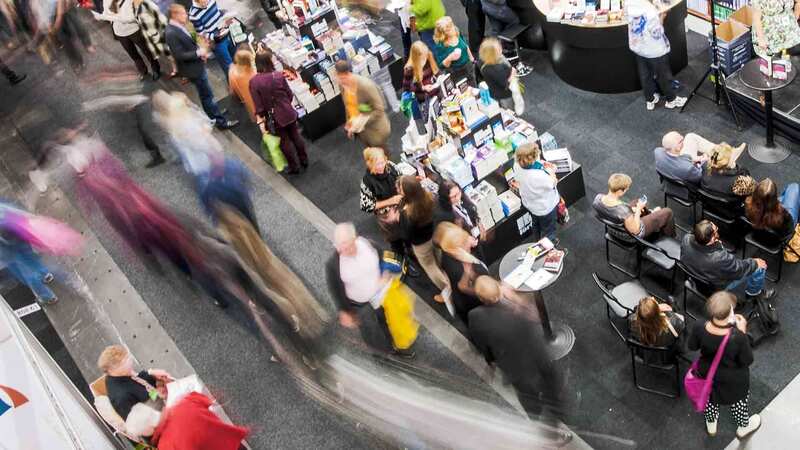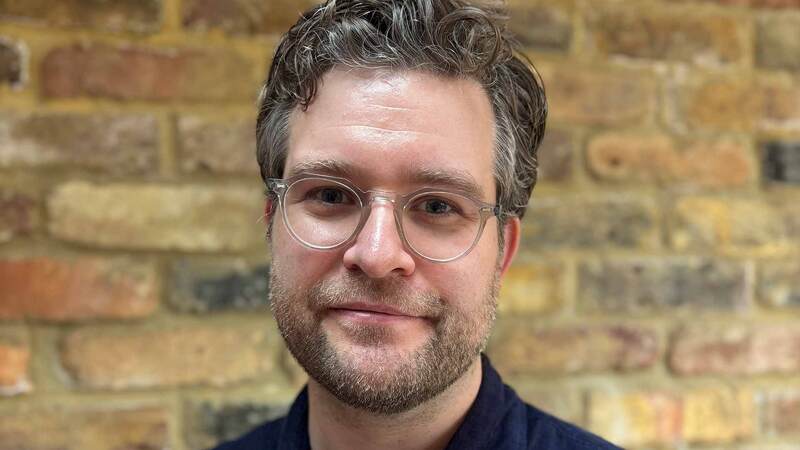You are viewing your 1 free article this month. Login to read more articles.
Campaigners call on literary festivals to find ways to retain digital access
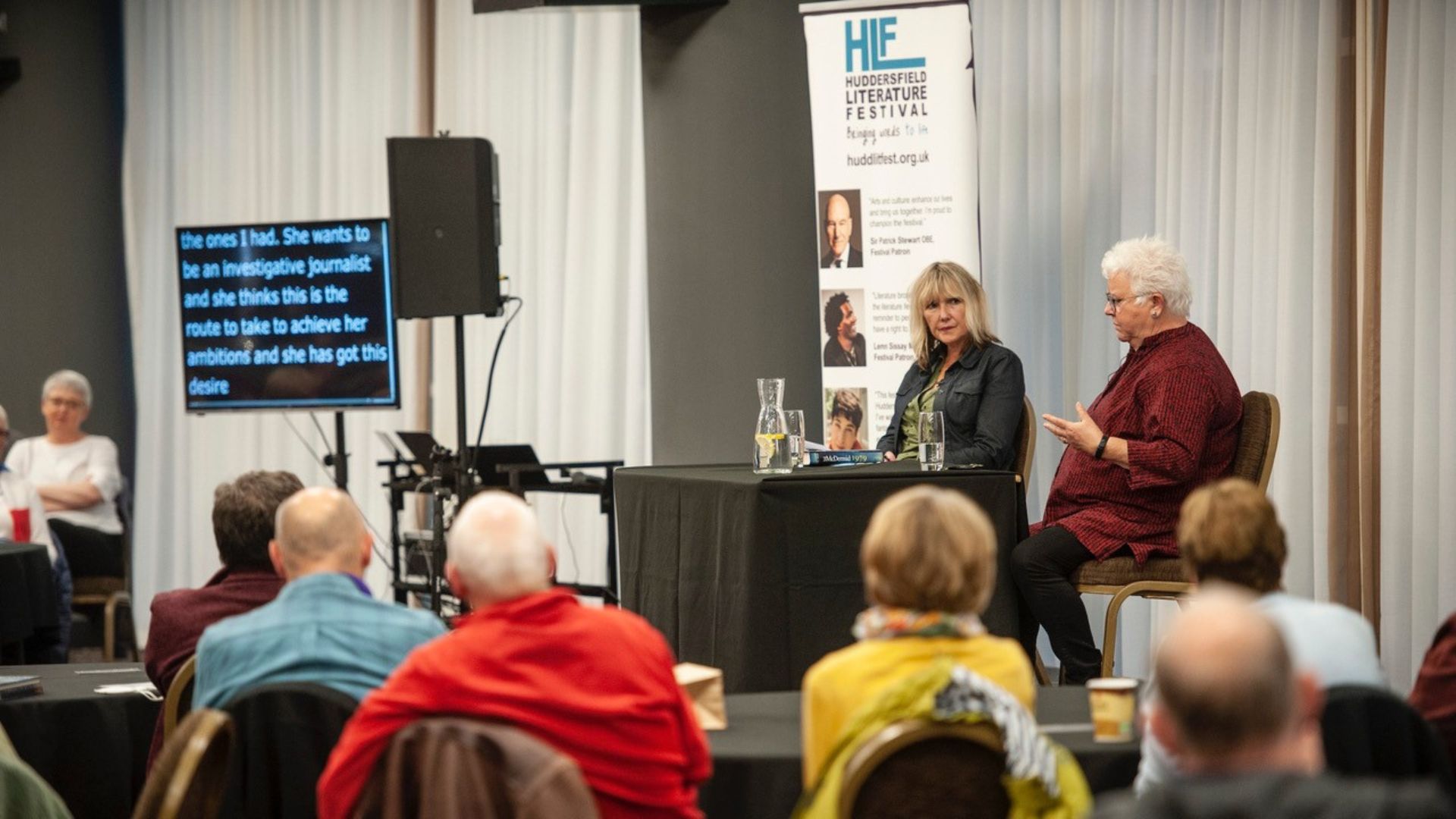
Groups including Inklusion, CRIPtic Arts and #KeepFestivalsHybrid are calling on literary festivals to find ways to retain digital access provisions after several, including Edinburgh International Book Festival (EIBF), indicated they would have to cut back on hybrid options due to the "prohibitive" cost.
While access campaigners acknowledge the difficult financial situation festival organisers find themselves in, they argue that going back to pre-Covid models is a “retrogade step” which removes disabled people’s access to culture. Instead they advocate using “less sophisticated tech” where necessary, as “doing something is better than doing nothing”.
Penny Batchelor, co-founder of #KeepFestivalsHybrid, said she was “shocked and extremely disappointed to read that some big name festivals are cutting online options in 2023 due to cost”. She added: “I was particularly surprised by EIBF’s decision, considering that in 2022 it was a leader in accessibility and launched the Inklusion Guide — which championed online festival access for disabled and chronically ill people, along with those who have caring responsibilities, who live in a remote area or who can’t afford the ticket, transport, food and hotel costs to attend a festival.
“Many disabled authors and readers have told me that they once again are being overlooked and forgotten about and it’s extremely distressing, removing their access to culture. Going back to pre-Covid festival models is a retrograde step. While we understand that money is tight for everyone at the moment, the festivals have made a decision to prioritise bums on seats over the disabled community, and have overlooked the fact that with the right marketing and ticket prices, going online can increase the number of attendees and ticket sales, due to geographical and transport factors being irrelevant.
“Another reason why the festivals’ decision is jarring is that most receive funding from Arts Council England (ACE). Organisations who receive ACE funding have to show how they are upholding the Let’s Create strategy’s four investment principles, one of which is inclusivity and relevance. Ignoring the access needs of 20% of the population who are disabled is hardly inclusive or fair considering they are receiving public money.”
Disabled writers Julie Farrell and Ever Dundas, co-creators of the Inklusion Access guide for UK literary sector organisations agreed. They told The Bookseller: “While we empathise with the situation many arts organisations find themselves in, we advocate that access never be cut, least of all in it’s entirety, to free up funds or reduce budget. We also advocate that hybrid remains the norm — even if it’s delivered via less sophisticated tech, such as a phone on a tripod. Ideally, access should be of the highest quality possible, but it’s better to have simpler provisions than none at all. We’d at least expect recorded events to continue, to make events available to those who could not otherwise attend. The Inklusion Guide offers ideas on sourcing funding for access, such as condensing programmes, establishing a specific bursary or donation pot, and being honest with audiences and investors about the need for dedicated access funding. Jamie Hale has also created a useful guide on cheap and easy hybrid events.”
Hale, founder of disability arts hub CRIPtic Arts, which offers support, growth, and opportunities for d/Deaf and disabled creatives, argues hybrid can be done “incredibly cheaply”. “To quite an extent for events up to a certain size you can have a laptop pointing at the speakers linked to a Zoom room. People can come and watch them or not. It doesn’t have to be a very resource-intensive, high-tech affair, especially if you’re not planning on marketing it intensively".
They stressed “doing something is better than doing nothing” even if an event is not “truly hybrid” where digital and in-person audiences can engage with the speakers. Cheaper and easier models include livestreaming to Facebook or YouTube, or uploading a recording. Organisers could even offer to only stream specific events that people have expressed interest in or have “roaming access workers armed with a Zoom account, a microphone, a webcam and a laptop” to focus on the bits people have asked for.
“There is a confused conflation as hybrid as an artistic decision and hybrid as an access decision” Hale said. “You can provide hybrid to make things more accessible without providing perfect hybrid artistically”.
Hale said the pandemic “sped up a move to online and hybrid existence that was going to come as a result of culture changing as a result of the ways we interact with the internet and with online content”. “But,” they said, “I think that it meant it happened too quickly and probably before audiences were entirely ready for it. Such that it was seen by a lot of people as a sort of temporary second-rate provision to be returned to. Whereas in fact I think it was the direction that artistic content and outreach was moving in but slowly.”
They said it was “frustrating” to see the sector rolling back its provision, and criticised claims that there is a “lack of engagement” with online provision. "From the position of being a harried producer I understand the thinking that ‘well, if only three people are joining is it really worth it’. But three people are joining a livestream if a livestream isn’t marketed. Three people are taking part in an online event if the other hundreds, nationally and internationally that might be interested, don’t know about it. If your target with hybrid work is engagement and your metric for success with it is number of people engaged, then that means that you need to be focusing on marketing and outreach and thinking about the specific communities to whom it appeals. And obviously disabled people are one of those communities but so are parents, so are carers, so are people in remote areas with less access to public transport, so are people who care about the environment. There are so many potential markets for the digital versions of content that aren’t being scoped out and reached and then people are saying ‘well, nobody’s coming’.”
Inklusion have called for bigger organisations to “step up to support festivals”, such as PRH partnering with the Working Class Writers’ Festival. “This should be a normal model of funding, and access should always be considered from the start of event planning, and funds ringfenced in order to make better provisions” they said.
“Having an access champion‚ a member of the organisation who can advocate for access, liaise with the disabled community and lead on actioning advice like ours, is an impactful first step towards better access.
“It’s vital that access provisions are never cut as a solution to funding. It only serves to perpetuate the idea that disabled people are disposable, of a lesser worth, and not considered as a core audience, when we’re a quarter of the population. The responsibility to make events accessible to disabled people lies firmly with the event provider — it’s not optional.
“For some disabled authors, the loss of hybrid events is a loss of income, of reaching an audience, and of building a network. It’s a loss of livelihood.”
A spokesperson for EIBF said: “We understand how valued livestreaming is for many people and we are dismayed we can no longer afford the considerable costs of doing it in the immediate future. It has been such a successful part of our programme and has helped many of our long-time supporters and new audiences to see events when they haven’t been able to come in person. We haven’t given up just yet: we are doing everything we can to explore avenues of funding and work out whether it is possible to produce good quality livestreams on a much-reduced budget.”
Cathy Moore, c.e.o and artistic director of Cambridge Lit Fest, said: “The pandemic did a lot for accessibility as cultural organisations, including our own, scrabbled to find ways to reach an audience for our endeavours and online became the route to survival for many. The unforeseen, and not necessarily intended, benefit was accessibility for all and many of us found responsive, grateful and enthusiastic audiences. It seems particularly hard for this to be withdrawn now that we are all back to presenting our core offer which is in-person live events. With accessibility high on our agenda we offered livestreamed events at our first in-person festival but found the costs unaffordable. To offer accessibility for all we adopted a compromise position of filming all events to be made available online post-festival. In addition all of these events are available for catch-up on our CLF Player which is a growing archive of events on an annual subscription. In order for most cultural organisations to offer a fully hybrid option funding or sponsorship is almost certainly needed.”
Michelle Hodgson, festival director for Huddersfield Literature Festival, said she’s “absolutely 100% committed to hybrid” and to increasing what the festival can offer. Although Huddersfield is a comparatively small festival, she said funding from the Arts Council has helped her to ringfence a certain amount to work with a local firm to livestream events.
“As a festival organiser, there’s only so much you can do of everything. You’re working to a budget. You’re trying to keep your funders happy, you’re trying to keep your audiences happy. And you’re trying to programme in, you know, creative and imaginative ways and trying to present events in those ways as well. So, there are lots of considerations. I think we all just have to do the best we can. But at the same time, I think there are opportunities for some kind of hybrid provision whatever your budget is. At the end of the day, it’s a question of priority.”
Ann Landmann, festival director of CYMERA: Scotland’s festival of science-fiction, fantasy and horror writing, has also vowed to “stick with hybrid”. Most of the time, this involves livestreaming to YouTube, which is behind a paywall. She notes this is “a lot simpler” than the “proper hybrid” previously used by Edinburgh, where one speaker can be in the room while another is on the screen, but says while this is “very elaborate and really cool" it is "entirely out of our budget”.
In the future she hopes sponsorship may help to provide a better hybrid experience but for now she vows “if we can find the money somehow, we will make it happen … even if it’s one person who can enjoy their favourite author on screen because of what we did, it will be worth it.”





